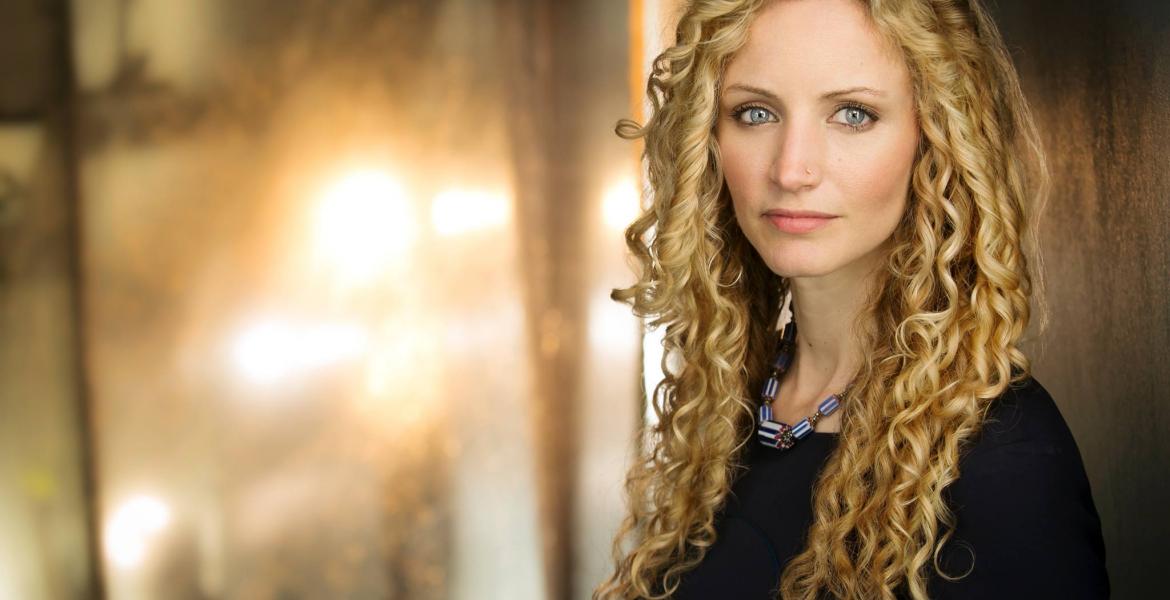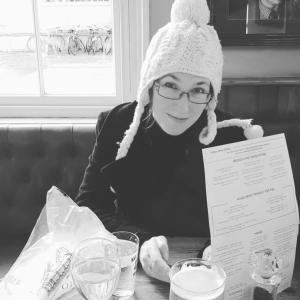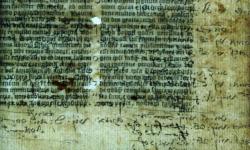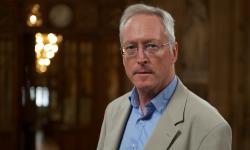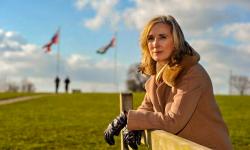Suzannah Lipscomb: In Conversation
Dr Suzannah Lipscomb is an accomplished historian and author, who has published several books on Henry VIII and the sixteenth century. Having previously worked as research curator for Hampton Court Palace, where she won awards for her heritage projects, she is now Reader in Early Modern History at the University of Roehampton. Furthermore, she regularly graces our television sets writing and presenting shows on topics as diverse as Elizabeth I and the hidden killers of the historical home, and is a regular on the historical talks circuit. We caught up with her during one such talk, on Henry VIII, at Stowe House.
You’re creative director at the Bess of Hardwick exhibition, We Are Bess; how did it come about?
It came about because Polly Schomberg - who's one of the visitor experience consultants for the National Trust in Derbyshire - and I used to work together at Hampton Court. We’d worked on the exhibition to mark the five hundredth anniversary of Henry VIII's succession in 2009, and had been looking for an excuse to work together again, plus I was really keen to do some more heritage stuff. So, we were talking about the centenary year of some women getting the vote, and we decided we wanted it to connect into Bess's story. Polly had already got some research done by Dr Emma Turnbull from the University of Oxford, who had looked into various aspects of Bess's life, but what hadn’t happened is looking at how that could be interpreted and used for the public. So, we came up with this idea to use the present to help interrogate the past and vice versa. We've asked at the moment sixteen, but in February it will be twenty, modern women to have their photograph taken. Their photos, beautifully framed, are hanging in the long gallery along with all these Tudor portraits, including Bess herself, and each of them is drawing on some aspect of Bess's life or experience. So, the themes that come out are how many of women's experiences are the same across time: to what extent women are believed when they speak – the exhibition opened just after the Kavanaugh sexual assault accusations, so that seemed particularly topical - and how women are talked about. Brett Kavanaugh is President Donald Trump's new Supreme Court Justice. He was accused of sexual assault by Christine Blasey Ford, a professor of psychology at Palo Alto University, in September 2018, but went on to win the nomination.These are the connecting themes from Bess's life.
Brett Kavanaugh is President Donald Trump's new Supreme Court Justice. He was accused of sexual assault by Christine Blasey Ford, a professor of psychology at Palo Alto University, in September 2018, but went on to win the nomination.These are the connecting themes from Bess's life.
How did you choose the women?
Above all we chose them because we wanted to find people we thought would resonate with some theme in Bess's life, and who might have something to say about it. Beyond that we wanted them as a whole to be representative of modern British society. So, it's women from a range of ages, ethnic backgrounds, religious and social backgrounds, sexual orientations, cis and trans; you name it basically. And that's really great because we've got this wonderful diversity of voices. Our youngest is Amika George who's a petitioner against period poverty, and at the top of the spectrum, our grande dame is Patricia Greene, who plays Jill Archer in The Archers, and who chose Bess as her great life on Radio 4. So we've got this extraordinary range of people; some of them are nationally known, such as Professor Mary Beard and Cathy Newman, and Sue Perkins as well from the new year. But also there are local women: there is a local woman who has six children, as Bess had six children who survived. We're also talking about Bess losing children; quite often that's mentioned in the books in one sentence, but she lost an infant and you’d think it probably had a bigger impact than that. So, we talked to Claire Cadman who’s a campaigner for a stillbirth and neonatal death charity in Derbyshire, who lost her son, Luke. One of the women has a charity, WORTH (Women on the Road to Healing), that's worked with women who have been involved in domestic abuse situations, and actually if you look at Bess' situation for a while you start to realise that's what it is. It's an amazing range of people.
Do you think that it's a good way of getting the message across about the relevancy of history?
It's interesting because, of course, it's quite a provocativeDeliberately causing anger or other strong feelings. thing to do as a historian, to say that we'll use the past to interpret the present and the present to interpret the past. You know the past should stand alone, but in actual fact, as a mechanism for getting people to engage with the reality of the past, I think it brings home that substance of people's lives that they were as real as we are, that they experience things. What was going on in their heads might be very, very different but actually emotions are very similar and I think it has a sort of power to make that real. So, I think it works in a heritage interpretation situation.
But that's not all you've been doing, because you've just published the Ladybird Expert book on the witch trials. How did you get involved in doing it?
So lovely Rowland White, who's the editor at Penguin, came and asked me if I'd like to do one of this new series of Ladybird Expert books. They're five or six thousand words on a topic, and you're trying to encapsulate the topic in that short space. And I said, yes it would be great and what I'd love to write about is witchcraft. I was really clear from the beginning about the topic and I think it's because my doctoral supervisor was Robin Briggs and my college advisor was Lyndal Roper, so I have grown up with some of the greatest minds working on witchcraft. I've taught it a lot to my undergraduates and I thought, you know, I feel like I've got an answer about why the witch trials happened. So, that's what is being addressed in the book: why suddenly between 1450 and 1750, or specifically between 1570 and 1650, did witchcraft belief suddenly manifest itself in persecution, prosecution, and execution of alleged witches. It was really fun.
You've managed to cover all of the main points very well. How did you go about condensing it?
Well it's something I've been trying to learn to do since I worked at Hampton Court actually: when I went from writing my 100,000-word doctoral thesis to writing sixty-word painting labels I had suddenly to learn the skill of being precise, whilst also being concise. It's quite a challenge, but it's fun to try and explain complex ideas simply and to do it with a paucity of words. So, I sat down – it was a week’s writing - and gave it a go. But I'd been thinking about it for a long time, so the ideas had percolated for a long time before that.
Would you say it's your favourite topic?
I don't think I have a favourite topic. The sixteenth century is my playground. I enjoy thinking about social history and gender history, religious history, political history. I'm not much of an economic historian but apart from that I do everything else. I think it's really wherever you can connect with the big questions about history or with the reality of people's lives.
How do you fit it all in - the writing, and the teaching, and the TV work, and the exhibitions, and the talks - how do you manage?
I just don't sleep! Don't really believe that: I actually sleep a lot. I just think it's amazing what you can get done if you put in the time really. You know what they always say: if you want something done ask a busy person. So, I juggle it a lot. I think probably I sometimes take on a little bit too much. But I do have the privilege of doing things that I love and it's hard to say no to things.
What’s the next project?
The next book is coming out in February and it's called The Voices of Nîmes: Women, Sex and Marriage in Reformation Languedoc, and this has been a real labour of love. I’ve gone from that 5-6,000 words of the Ladybird Expert book to 185,000 words, and it's based on over a thousand cases from the moral courts of the Protestants in the south of France. So, where people converted to Protestantism in France, they would set up these consistories, which were courts basically to reprimand and interrogate people about their moral behaviour - generally people sleeping with people they shouldn't have. What's amazing about this, like so many other court records throughout history like Montaillou, is that they are an incredible resource for people's ordinary lives. Before me I think two historians had read them and they had read them to look at ecclesiastical history. But I stumbled across them and I have used them to talk about women's lives in late-sixteenth-century and early-seventeenth-century France. And what's brilliant about this is that for French women we have this extraordinary gap, we have records for things like episcopal courts up to about 1540, and then we've lost everything between 1540 and 1660. They don’t really appear in criminal courts because didn't have any legal standing under law when they were married. They don't really appear in the prescriptive literature; that tells you what they're supposed to do, not what they actually did. So most of the histories of women in France in this period have been about elite women or about the structures of society. They haven't been about ordinary women's voices, and their experiences, and their behaviour, and their attitudes, and that's what I'm trying to get at. It comes out on 14 February. All the stuff about sexual assault and broken marriages obviously appealed to my publisher's slightly twisted sense of Valentine’s!! Because it's the morals court, most of it is bad news, but those broken moments in society give you a way to see into it.
One last question: if you could go to any point in time and meet anyone in history when – or who – would it be and why?
There's no way it wouldn't be 1530 or something like that. I've got to say it would be impossible not to go and meet Henry VIII. But if I could stay there - obviously not for too long because I'd like to survive - then it would be amazing to see what was happening on the continent, to see what was happening in that ‘new’ world. That would be incredible, but I would have to meet the big man himself.
You can find out more about We Are Bess, which reopens to the public on 16 February 2019, by visiting the National Trust website.
All of Suzannah’s books, including the excellent Ladybird Expert book on witchcraft, can be purchased from all good book shops.
Competition Time!
We have a selection of Suzannah’s books, including her latest book on witchcraft, to give away. See our Twitter page to enter. Competition closes on 30 November 2018.
- Log in to post comments


